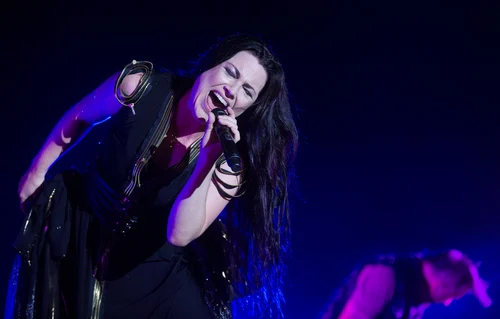The question, posed in internet forums, music criticism circles, and casual conversations among rock fans, is designed to be provocative: Is Amy Lee overrated? It’s a query that often surfaces not from a place of genuine decline in her artistry, but from the strange, cyclical nature of cultural re-evaluation. To examine Amy Lee’s legacy is to dive into a complex interplay of massive commercial success, genre-defying sound, industry sexism, and the undeniable, singular force of her artistic vision. The answer to whether she is overrated or iconic isn’t a simple binary; it’s a compelling argument for her status as one of the most significant, if sometimes misunderstood, figures in 21st-century rock.
This artistic growth demonstrates a musician refusing to be pigeonholed. She has consistently fought for creative control, often at great professional cost, including legal battles with management and her former co-songwriter. This narrative isn’t one of a passive industry product being overrated; it’s the story of an auteur fighting to protect her artistic integrity—a struggle romanticized when it involves figures like Kurt Cobain or Trent Reznor, but sometimes used to paint Lee as “difficult.”
Any critique of Amy Lee’s legacy must be viewed through the lens of the rock genre’s long and troubled history with women. The “overrated” charge is frequently applied to women who achieve success in male-dominated fields. The standards are different. Male frontmen are “tormented geniuses” or “rock gods” for expressing angst; women are “dramatic” or “hysterical.” Male musicians are “perfectionists”; women are “control freaks.”
Amy Lee emerged in an era where a woman in rock was still often a novelty. She was constantly compared to other women (like Sharon den Adel of Within Temptation or Cristina Scabbia of Lacuna Coil) as if there could only be one successful female voice in the genre, rather than being accepted on her own terms. She was asked in interviews about her makeup and relationships while her male counterparts were asked about their gear and songwriting process. This constant undercurrent of sexism forces female artists to work twice as hard for half the credibility, making the “overrated” tag particularly disingenuous when applied to them.
To understand the criticism, one must first revisit the unprecedented explosion of Evanescence. Their 2003 debut album, Fallen, was a cultural tsunami. It sold over 17 million copies worldwide, fueled by the inescapable dual singles “Bring Me to Life” and “My Immortal.” They arrived at the peak of nu-metal and rap-rock, a landscape dominated by bands like Linkin Park, Limp Bizkit, and Korn. Evanescence was different. They were darker, more ornate, and fronted not by a rapper or a guttural vocalist, but by a classically trained pianist with a soaring, operatic mezzo-soprano who wrote songs about grief, loneliness, and existential longing.
This immediate commercial success is the first arrow in the quiver of the “overrated” argument. Anything that popular, especially with a fervent teenage fanbase, is often dismissed as a passing fad or a “guilty pleasure.” Critics at the time, and some since, have labeled their music as overly dramatic, dubbing it “Hot Topic rock” or “mall goth.” This dismissal is a classic tactic to undermine art that resonates deeply with young women, a demographic whose tastes have historically been scorned by the male-dominated rock critical establishment. The perceived “theatricality” of their music—the string arrangements, the choir-like vocals, the lyrical themes—was framed as camp rather than genuine artistic expression, a charge rarely leveled with the same venom at male-led progressive or symphonic metal bands.
At the heart of the debate is Amy Lee’s voice. Is it technically perfect? By conservatory standards, perhaps not. It is not the pristine, flawless instrument of a pure opera singer. But to judge it solely on technicality is to miss its entire purpose. Amy Lee’s voice is arguably the most potent emotional instrument in modern rock.
It is a voice of immense dynamic range. She can deliver a fragile, breathy whisper that conveys vulnerability and intimate pain, as in the verses of “My Immortal” or “Hello.” Then, within a single phrase, she can unleash a powerful, full-chested belt that resonates with raw, cathartic anguish, as heard in the choruses of “Going Under” or “Whisper.” This isn’t vocal showboating for its own sake; it is a masterful use of texture and power to serve the song’s emotional narrative. She doesn’t just sing about pain, loss, and defiance; her voice becomes the physical embodiment of those feelings. This ability to connect on a visceral, emotional level is the antithesis of being “overrated.” It is, in fact, the hallmark of a truly great vocalist—one who transcends technique to become a vessel for meaning.
A common, and often sexist, reduction is to label Amy Lee as merely a “singer” fronting a band. This overlooks her fundamental role as the chief architect of Evanescence’s sound. She is the primary songwriter, lyricist, and musical composer. The piano isn’t a prop; it is the foundation upon which most Evanescence songs are built. Her classical training infuses their music with a compositional complexity that separates it from much of their post-grunge and alternative metal peers.



